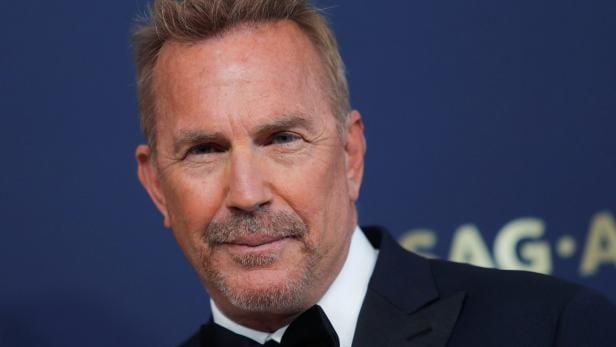
The Unforgiving Current: Kevin Costner and the Clock of Creation
The news rippled through the entertainment world like a stone dropped into a still pond: Kevin Costner, the stoic heart of Yellowstone, was stepping away. The reasons, initially shrouded in Hollywood whispers, eventually coalesced around a simple, yet profoundly illustrative truth, articulated by Costner himself: "Material has to be ready at certain times." It's a statement that, on its surface, speaks to the mundane logistics of television production. Yet, beneath its unadorned practicality lies a deeper, more resonant wisdom, a testament to the unforgiving current of creative endeavors and the relentless ticking of life's clock.
Imagine, for a moment, the massive machinery of a show like Yellowstone. It is not a single artist at an easel, nor a lone writer at a desk. It is a vast, intricate ballet of hundreds, if not thousands, of moving parts. There are the writers, laboring to weave complex narratives; the directors, tasked with translating vision to screen; the cast, with their demanding schedules and character immersion; and a sprawling crew – cinematographers, set designers, costume artists, lighting technicians, sound engineers, stunt coordinators, caterers, drivers – each a vital cog in an immense clockwork. Beyond them are the network executives, the marketing teams, the advertisers, all beholden to release dates, viewing windows, and financial quarters. Each of these components operates on its own delicate timeline, but all must converge at a single, predetermined point: when the "material has to be ready."
Costner, a seasoned veteran of Hollywood and a director in his own right, understands this implicitly. His explanation isn't a complaint; it’s an observation born of experience. He knows the delicate balance required to shepherd a project from concept to screen. When he speaks of "material," he refers not just to his lines or his scenes, but to the entire, gargantuan production package. If the script isn't finalized, if locations aren't secured, if key actors aren't available for the scheduled shoot dates, the entire edifice begins to wobble. A single delay, like a crack in a dam, can quickly cascade into a torrent of missed deadlines, budget overruns, and ultimately, a jeopardized season. The financial stakes are astronomical, the careers of hundreds hang in the balance, and the eagerly awaiting audience, accustomed to their seasonal fix, will not indefinitely wait.
But Costner's statement transcends the specific economics of a television show. It speaks to a universal truth about the nature of any significant creative or collaborative endeavor. Think of a bridge being built: the girders must be ready when the foundations are laid, the concrete poured when the rebar is set. A symphony orchestra cannot begin its performance if the timpani player is delayed, or if the sheet music has not been distributed. A harvest, in its season, demands attention at its precise moment; delay, and the crops will rot in the field. Life itself, in its grander rhythms, adheres to this principle. The opportune moment for a venture, a partnership, a bold declaration, often passes if not seized.
The illustrative power of Costner's words lies in this profound echo. His personal ambition, the passion project Horizon that drew him away, became a stark counterpoint to the immovable force of Yellowstone's production schedule. He, the central star, found himself caught between two powerful currents, each demanding absolute fealty to its own "certain times." In the end, even a figure of Costner's stature could not bend the river of an established production to his will. The river, after all, flows on.
So, Kevin Costner's departure from Yellowstone is more than just Hollywood drama; it is a masterclass in the realities of creation under pressure. "Material has to be ready at certain times" is not a lament; it is an immutable law. It reminds us that vision, talent, and passion, while essential, are tethered to the unforgiving clock of the real world. Every grand endeavor, be it a blockbuster series or the quiet pursuit of a dream, operates within a finite window of opportunity, a specific season when all elements must converge. To ignore that timing is to risk watching the tide recede, leaving behind only the ghost of what might have been. The current waits for no one, not even a star.
